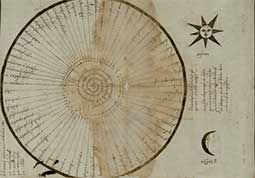Themes, theories and methods I-II
 This core course is divided into two trimester-long modules that explore some of the dominant themes and theories in world history today. Each module is assessed in the trimester in which it is offered. Methodological tools are taught along with the different historiographical approaches. Topics include globalization; convergences and divergences; equalities and inequalities; minorities, race, and ethnicity; gender, power, and identities; biological, cultural, environmental and migratory exchanges; and science, technology and medicine. Theories may include micro-history; history of mentalities; postmodern and postcolonial approaches; economic and business history; historical anthropology; and cultural studies. Methods include comparative and relational approaches; short and long durations; and transnational, translocal and transcontinental spaces. In the second term, specific sessions will also be dedicated to research strategies in order to prepare students for their final project. "Overall, the goal is to work toward a thematic approach that explores the historical origins of the globalized world today, from refugees to inequalities to religious radicalism to the environment. The topics will slightly change from year to year depending on the professors. This course is usually team taught.
This core course is divided into two trimester-long modules that explore some of the dominant themes and theories in world history today. Each module is assessed in the trimester in which it is offered. Methodological tools are taught along with the different historiographical approaches. Topics include globalization; convergences and divergences; equalities and inequalities; minorities, race, and ethnicity; gender, power, and identities; biological, cultural, environmental and migratory exchanges; and science, technology and medicine. Theories may include micro-history; history of mentalities; postmodern and postcolonial approaches; economic and business history; historical anthropology; and cultural studies. Methods include comparative and relational approaches; short and long durations; and transnational, translocal and transcontinental spaces. In the second term, specific sessions will also be dedicated to research strategies in order to prepare students for their final project. "Overall, the goal is to work toward a thematic approach that explores the historical origins of the globalized world today, from refugees to inequalities to religious radicalism to the environment. The topics will slightly change from year to year depending on the professors. This course is usually team taught.
